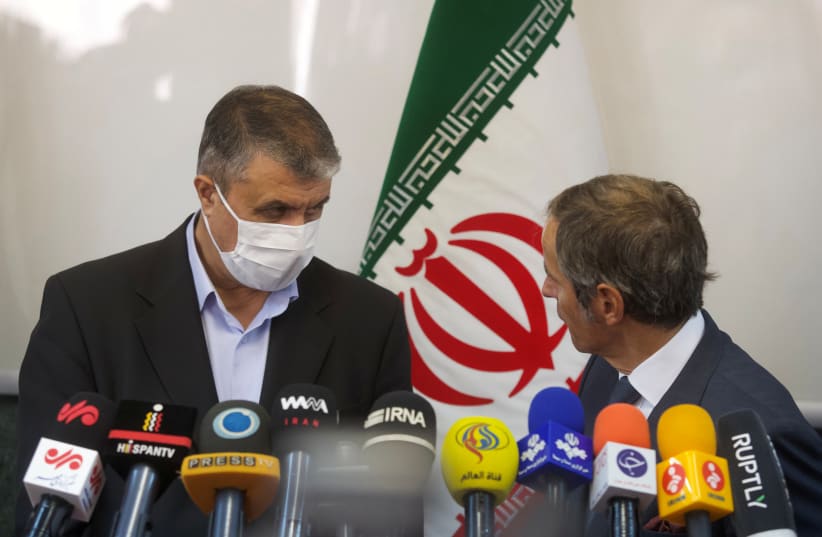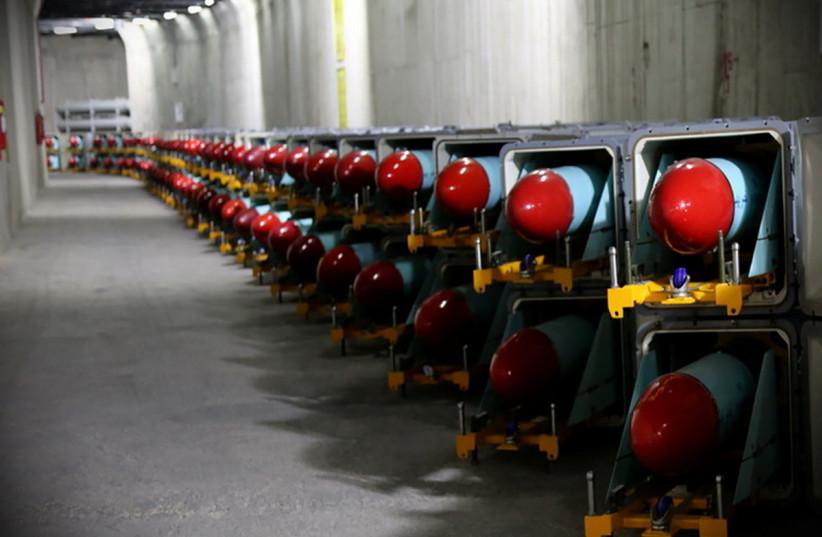Iran has enriched more than 120 kg. of 20% enriched uranium, the head of its atomic energy organization, Mohammad Eslami, said Saturday evening, state news agency IRNA reported.
“We have passed 120 kilograms,” IRNA quoted him as saying. “We have more than that figure.”
“Our people know well that they [Western powers] were meant to give us the enriched fuel at 20% to use in the Tehran reactor, but they haven’t done so,” Eslami said. “If our colleagues do not do it, we would naturally have problems with the lack of fuel for the Tehran reactor.”
If true, the numbers could be considered a major jump forward in uranium enrichment, potentially eventually toward a nuclear weapon if Tehran made the choice to try and break the nuclear threshold.
Last month, the International Atomic Energy Agency said Iran had 84.3 kg. of uranium enriched to 20%.
According to the Jewish Institute for National Security of America, 155 kg. of 20% enriched uranium would be enough to eventually be scaled up to weaponized uranium for a nuclear bomb.
That would mean 120 kg. would be almost 80% of the way there.
According to a recent JINSA report, “Iran is actively reducing the growth of its stockpile of 20% enriched uranium, which represents nine-tenths of the effort to achieve fissile material. Since starting in January, Iran cumulatively has enriched an estimated 152 kg. uranium to 20% at a rate of 19 kg./month.”
In addition, JINSA said these statistics show “Iran’s claim, in June, to have produced 108 kg. at an average rate of 40 kg./month over the preceding three weeks was provocatively overstated.”
Putting all the pieces together, JINSA said: “To limit its stockpile, Iran has been converting some of it to uranium metal, which, while worrisome because this process is one of the steps to a nuclear weapon, means this material can no longer be used to enrich fissile material.”
Before Saturday night’s Iranian announcement, JINSA had said assuming Iran continues producing and diverting 20% uranium at its current rate, it would achieve sufficient uranium for a nuclear weapon by June or July 2022.
Last month, the Institute for Science and International Security estimated that Iran could produce enough enriched uranium for a single nuclear warhead within approximately one month.
The complex calculations on how fast the Islamic Republic can produce a nuclear weapon involve a mix and match of uranium it has enriched to three different levels: 5%, 20% and 60%, with 90% being the weaponization level.
In recent weeks, Tehran has given mixed messages about whether it would return to nuclear talks with the US and world powers and rejoin the Joint Comprehensive Plan of Action’s nuclear-deal limits in exchange for Washington lifting sanctions or whether it is stalling for some other purpose.
In the meantime, since mid-September, the IAEA has heavily criticized Iran for blocking its access and disabling some of its nuclear monitoring equipment.
Iran has blamed the standoff over monitoring on an explosion at its Karaj nuclear facility in June, which the ayatollahs attributed to the Mossad.

